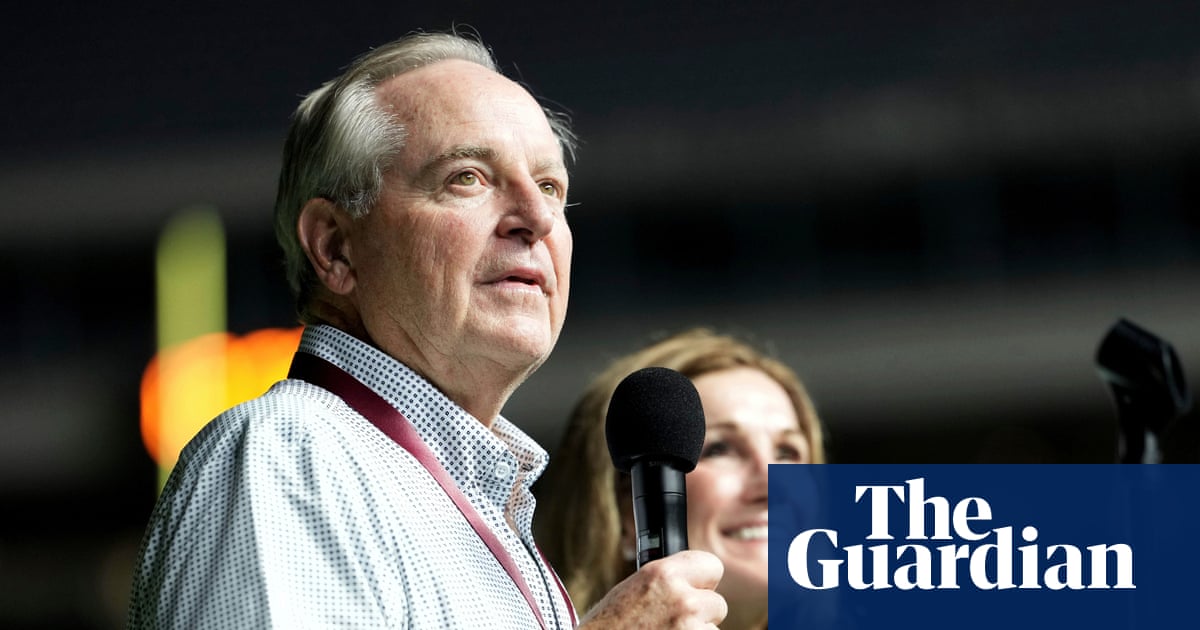The chancellor, Rachel Reeves, told a fossil fuel company the industry would receive a “quid pro quo” in return for higher taxes on its windfall profits, it can be revealed.
In a meeting with the Norwegian state energy company Equinor on 27 August, Reeves suggested that the government’s carbon capture, usage and storage (CCUS) subsidies were a payoff for oil firms being hit with a higher tax rate.
Minutes of the meeting obtained by DeSmog and seen by the Guardian state that Equinor’s CEO, Anders Opedal, raised concerns over the energy profits levy – also known as the “windfall tax” – and “its impact on the value” of Equinor’s UK portfolio.
In response, Reeves said that raising the windfall tax from 35% to 38% was a “manifesto commitment”, but stated that “Equinor should recognise the quid pro quo – the funds raised enable government investment in CCUS etc”.
CCUS is the controversial practice of trapping the emissions produced by fossil fuel plants before they enter the atmosphere. Many scientific experts have suggested the technology is not economically viable. It is accused of being a favourite climate “solution” of the fossil fuel industry since it allows for the continued extraction of oil and gas.
The Labour government announced in October it would provide £22bn in subsidies to CCUS projects over 25 years after an increase in lobbying by the fossil fuel industry.
The Green party co-leader, Carla Denyer, said Reeves and the Labour government had been “caught out making promises in a secret exchange deal which goes against the interests of the British people”.
The MP for Bristol Central added: “In public, they claim to be taxing fossil fuel giants more fairly by raising the windfall tax, but behind closed doors they are giving back with dodgy deals to allow the fossil fuel corporates to continue with business as usual under the guise of CCUS – an expensive distraction and largely unproven technology.”
Equinor is one of the main companies investing in the UK’s CCUS sector. In December, the government signed deals with Equinor, BP and TotalEnergies to develop carbon capture facilities in Teesside. This will involve the development of the Net Zero Teesside power plant, which will be 25% owned by Equinor and aims to be the world’s first gas-fired power station featuring CCUS.
Earlier this year, Equinor was forced to retract a claim that it stores 1m tonnes of carbon dioxide annually at its flagship carbon capture project in the North Sea. Equinor has not captured 1m tonnes of CO2 per year at the site since 2001, and only captured a 10th of that figure in 2023.
Equinor made a $28.7bn (£21.2bn) post-tax profit in 2022 after Russia’s invasion of Ukraine triggered higher oil and gas prices – a figure that stood at $8.8bn in 2024.
Tessa Khan, the executive director of the campaign group Uplift, said: “Oil companies like Equinor have held sway over successive UK governments, for years shaping policies to benefit their bottom line and slowing down climate action. This Labour government must stand up to them and put our needs – for affordable clean energy and a safe climate that we can pass on to our children – ahead of their insatiable need to profit.”
The House of Commons’ public accounts committee, which scrutinises government spending decisions, released a report in February describing the UK’s £22bn CCUS subsidies as “risky”.
The report noted that the government has downgraded its ambitions for CCUS storage, scrapping its previous commitment of storing 20 to 30m tonnes annually by 2030. It also highlighted that the UK’s new CCUS projects do not allow the government to share any potential profits, or for local consumers to benefit from lower energy bills.
The committee also reported that producing liquid natural gas, which will be used in the UK’s CCUS projects, leaks more greenhouse gases into the atmosphere than previously thought. “This could undermine the rationale for pursuing certain schemes,” the report said.
After being sued by the environmental consultant Andrew Boswell over the Net Zero Teesside scheme, the previous Conservative government admitted it had not taken into account the plant’s full potential emissions, which Boswell estimated could reach more than 20.3m tonnes of carbon dioxide equivalent during its lifetime.
In summer 2024, a judge rejected Boswell’s case, which argued that officials did not fully explore the environmental impacts of the scheme before approving it. The government also won the appeal in May.
after newsletter promotion
Boswell, who leads the Scrap Carbon Capture campaign, called Reeves’s Equinor meeting “an outrageous spectacle”.
He said: “She begs Norway’s oil colossus to tax its huge profits, and then gifts it with far more in return – many billions over decades for climate-wrecking CCUS.”
Equinor and Shell have formed a joint venture to become the UK’s largest North Sea fossil fuel producer. In November, the government admitted it had unlawfully approved the development of the UK’s largest untapped oilfield, Rosebank, which is operated by Equinor, by not taking into account the climate effects of the combustion of oil and gas to be extracted from the field. Equinor intends to reapply for approval to develop the field.
The Labour government has been steadfast in its support for the UK achieving net zero emissions by 2050, with Keir Starmer having said “homegrown clean energy” is “in the DNA” of his administration.
The Climate Change Committee stated in its 2025 appraisal of the government’s net zero policies that the UK needs to scale up its CCUS capacity to 73m tonnes-a-year by 2050 to help meet its climate commitments.
“Investment in carbon capture and storage is a gamble on unproven technology,” said Lily-Rose Ellis, a campaigner at Greenpeace UK. “All it does is give oil and gas giants carte blanche to continue causing planet-destroying emissions in the hopes that one day they might be able to capture the carbon and store it for all of eternity. Public money should be spent on renewables, which guarantee to lower emissions, bring bills down and boost the economy with new jobs.”
A spokesperson for Equinor said: “Equinor has been a reliable energy partner to the UK for over 40 years, providing a stable supply of oil and gas, developing the UK’s offshore wind industry, and pioneering solutions to decarbonise the UK economy, including carbon capture and storage.
“Using our experience of decarbonising energy production in Norway, including safely storing carbon emissions under the North Sea for over 25 years, we are supporting the UK to develop its own homegrown energy transition.”
A government spokesperson said: “We are delivering first-of-a-kind carbon capture projects in the UK, supporting thousands of jobs across the country, reigniting industrial heartlands and tackling the climate crisis. Money raised from changes to the energy profits levy made at autumn budget last year support the transition to clean energy, enhance energy security and independence, provide sustainable jobs for the future, and help protect electricity bills against future price shocks.”

 3 months ago
92
3 months ago
92

















































